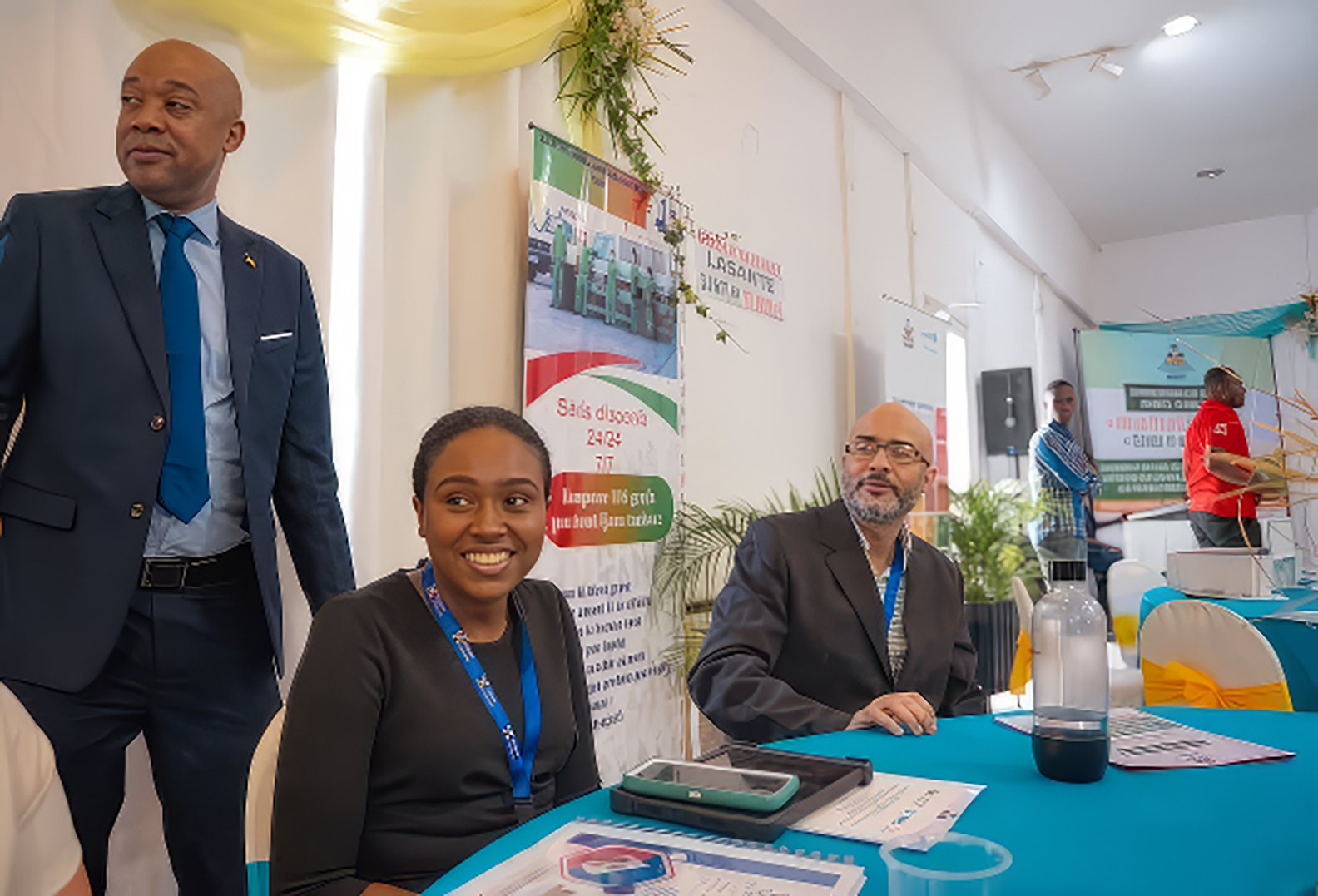Courage and Clarity: Haiti Publishes NCD Report Despite Obstacles
Government turnover, political instability, and recent violence all stood in way of a landmark effort to strengthen the country’s health system.
The Haitian Ministry of Health and Population recently organized an event in Port-au-Prince to commemorate the official launch of the national commission report on noncommunicable diseases, injuries, and poverty. The event was part of a week of health-related advocacy and interventions across Haiti. Pictured at left is Dr. Sinal Bertrand, the minister of health for Haiti. (Photo: Melissa Jeanty/Partners In Health/Zanmi Lasante)
Haiti marked a milestone achievement in strengthening its health system earlier this month, when more than 150 people gathered in Port-au-Prince for the formal launch of its national commission report on noncommunicable diseases, injuries, and poverty.
The report assesses the nationwide prevalence of severe noncommunicable diseases, injuries, mental health conditions, cancers, and more; identifies 37 priority conditions and injuries; and outlines interventions for a stronger, more equitable health system. Creation of the report was chaired and funded by national health officials; Zanmi Lasante, as the global health organization Partners In Health is known in Haiti; and the Haitian Diabetes and Cardiovascular Disease Foundation, or FHADIMAC.
Members of the Haiti NCDI Poverty Commission first drafted the report in 2019. But several years of delay were spurred by a range of factors, including political instability, consistent turnover in the Ministry of Health and other government bureaus, the COVID-19 pandemic, and persistent violence, which necessitated an evacuation in late March of the flagship University Hospital in Mirebalais.
“It’s remarkable to see the Haitian government’s determination to address NCDs, despite numerous challenges over the past several years, and ensure that this commission report can come to life and drive policy and programmatic changes for the country’s health system,” said Dr. Neil Gupta, senior director of policy for the Center for Integration Science in Global Health Equity at Brigham and Women’s Hospital, the U.S. co-secretariat of the NCDI Poverty Network. “We celebrate the success of the partnership that the government, Zanmi Lasante, and FHADIMAC have forged.”
Dr. Gene Kwan, a cardiologist affiliated with both the Center for Integration Science and Zanmi Lasante, said nine hospitals in Zanmi Lasante’s network across Haiti have set up designated spaces that serve similar functions as those of PEN-Plus clinics, providing integrated care for NCDs and a referral stream for patients with type 1 diabetes, heart disease, and hypertension.
“Sickle cell disease also has been a focus over the past year,” Dr. Kwan said.
Dr. Davidson Laneau, chief internal medicine resident at University Hospital and program lead for NCDs in Haiti, said he hopes the report launch will create momentum for investment in NCD care.
“We want this launch to build advocacy for NCDs,” said Dr. Laneau, who was at University Hospital during the late March attacks.
The launch was part of a week of health-related advocacy and interventions across Haiti, where efforts to further health equity, particularly in poor and marginalized areas, are pushing forward despite ongoing instability.
“This report is not an end; it’s a beginning,” Dr. Ralph Ternier, director of clinical operations for Zanmi Lasante, told the event participants. “It invites us to act—with courage and clarity—to build a health system that serves the silent majority.”

